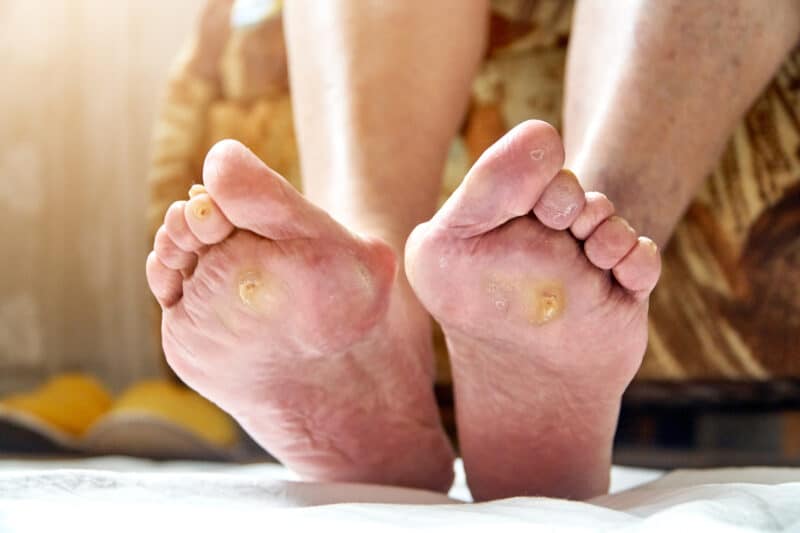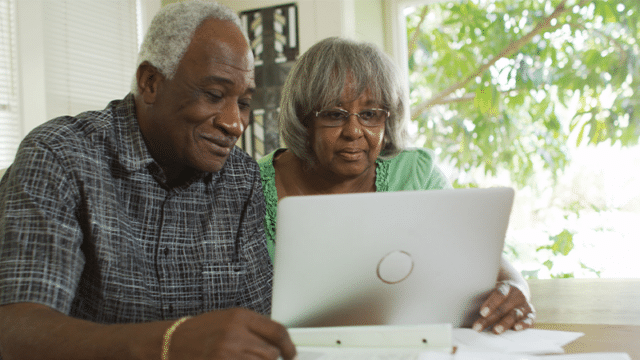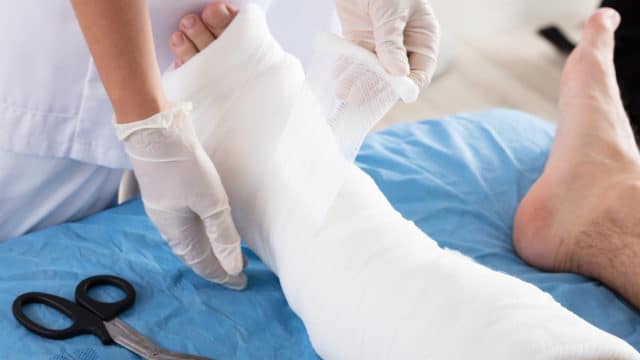Improve Healing for Diabetes-Related Wounds
 At Healogics, we understand the unique challenges faced by the millions of Americans living with diabetes, particularly when it comes to chronic, non-healing wounds. As we observe American Diabetes Month this November, we’re committed to shedding light on diabetes-related wounds and their impact on overall health.
At Healogics, we understand the unique challenges faced by the millions of Americans living with diabetes, particularly when it comes to chronic, non-healing wounds. As we observe American Diabetes Month this November, we’re committed to shedding light on diabetes-related wounds and their impact on overall health.
Our network of over 600 Wound Care Centers® across the nation are educating their local communities about the critical importance of awareness, early intervention, and expert care for diabetes-related chronic wounds like diabetic foot ulcers. We believe that knowledge is power, and we’re here to empower you with the information and care to improve healing and prevent complications.
A Growing Concern
There are 37 million Americans currently living with diabetes – including one out of every four adults over age 65 – according to the American Diabetes Association (ADA). Alarmingly, 96 million American adults have prediabetes and more than 80% are unaware of their condition.
Diabetes-related wounds are a leading cause of limb loss, accounting for nearly 70% of lower extremity amputations in the United States. About one in four people living with diabetes will develop a foot ulcer. In addition to diabetes, other factors such as neuropathy, peripheral arterial disease (PAD), deformities and Charcot foot can increase the likelihood of chronic wounds occurring.
However, there’s hope. Early detection and specialized care from a Wound Care Center® can reduce healing times and amputation risk by nearly half. At Healogics, we’re committed to providing this expert care and supporting you every step of the way.
Improving Healing and Preventing Chronic Wounds
Our Healogics physicians recommend the following to help prevent diabetic foot ulcers:
- Maintain good blood sugar control.
- Stop smoking immediately.
- Schedule comprehensive foot examinations with your healthcare provider at least four times a year.
- Examine your feet daily, or have a family member inspect them.
- Practice good foot hygiene, including careful toenail care.
- Consult your healthcare provider for professional treatment of corns and calluses.
- Choose supportive, properly fitting footwear (both shoes and socks).
- Improve circulation through a healthy diet and regular exercise
- Attend regular check-ups with your primary care physician
Remember, early detection is crucial. If you notice any changes in your feet or develop a wound, don’t wait—seek professional help immediately. Our wound care specialists are here to provide expert care—no referral needed. If you or a loved one has a wound that isn’t healing, don’t hesitate to reach out. Find a Healogics Wound Care Center® near you today.



